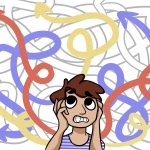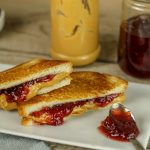Can You Miss the Point of Nutrition? by Joan Kent, PhD
True story. A nutrition client of mine emailed me the morning of a recent appointment because he hadn’t kept a food log during the week.
Why? He was depressed – an ongoing problem for him – and “taking care of mental health” had been his priority that week.
I have great compassion for his ongoing depression and do understand the shifting priorities. But skipping his food log usually goes with skipping good nutrition. And doing that due to depression seemed like a ‘Gift of the Magi’ type of irony. And it misses the point.
Don’t Underestimate the Power of Food
If you really believe that food is just calories in / calories out, you may conclude that what you eat doesn’t matter.
But if you know that foods are powerful psychoactive drugs, you’ll see that a plan that uses the psychoactive properties of foods to help your mental state is better than random and careless eating.
Let’s look at 2 examples.
- Carbs Can Actually Be Good for You
Let’s start by clarifying which foods we mean. Vegetables are carbs. So are fruits. The carbs I’m talking about in this post are starches.
Starches include quinoa, lentils, parsnips, turnips, sweet potatoes, rice, squash, beans, and such.
As you probably know, everyone seems to be avoiding starches (or as they say, “carbs”). Everyone reads about avoiding carbs. Everyone recommends avoiding carbs.
So why am I recommending the opposite? Why should you eat starches? When are starches good for you?
They Help to Defeat Sugar Cravings
Eating starches in controlled quantities within a meal or snack throughout the day can help prevent sugar cravings.
The reverse is also true. Avoiding starches may lead to cravings for sugary foods or even for wine or other alcohol.
Combine the starches with protein, vegetables and healthful fats — at meals and even for snacks. This can reduce the likelihood, and the severity, of sugar cravings. You may even stop cravings altogether.
- Coffee Can Help You Control Pain
Caffeine can boost pain relief from other pain-relievers OR work by itself. It’s especially good for muscle pain relief. That’s great news if you work out hard.
Scientists speculate that caffeine’s pain-relieving power comes from 3 mechanisms, but we’ll talk about just one.
Caffeine blocks release of adenosine. Adenosine is a brain chemical that carries pain signals to the brain. If it’s blocked, the pain signals don’t make it to the brain.
Under normal conditions, adenosine inhibits the release of 2 brain chemicals – norepinephrine and dopamine. That keeps the amounts available at a given time under control.
When we drink coffee or tea, the caffeine occupies the adenosine receptors and prevents adenosine from “getting in” or binding with those receptors. As a result, more dopamine and norepinephrine are released. That’s why coffee and tea make us feel alert. We’re buzzed by our own brain chemicals.
But norepinephrine also has analgesic power, so it offers a bonus. It wakes us up and helps to relieve pain.
Norepinephrine is made when we eat protein foods: fish, eggs, chicken, beef, lamb, pork, turkey, shrimp, crab, yogurt (with 18-22 g of protein per serving).
For non-animal protein, use high-quality, vegan protein powders from peas, hemp, or other vegetable sources. (Vegetables provide small amounts of protein, but this is about maximizing protein’s effects.)
Eat protein foods throughout the day, so your norepinephrine stores are adequate when you want to release them with a cup of coffee.
Your Take-away?
Pain, cravings, anxiety, mood swings, and other issues are more controllable than you may realize – without drugs. Just visit www.LastResortNutrition.com and grab your free Last Resort consult. A few changes can shift things for the better, naturally. It’s worth it to feel great so easily. You got this!
Brought to you by Dr. Joan Kent, best-selling author of Stronger Than Sugar.



